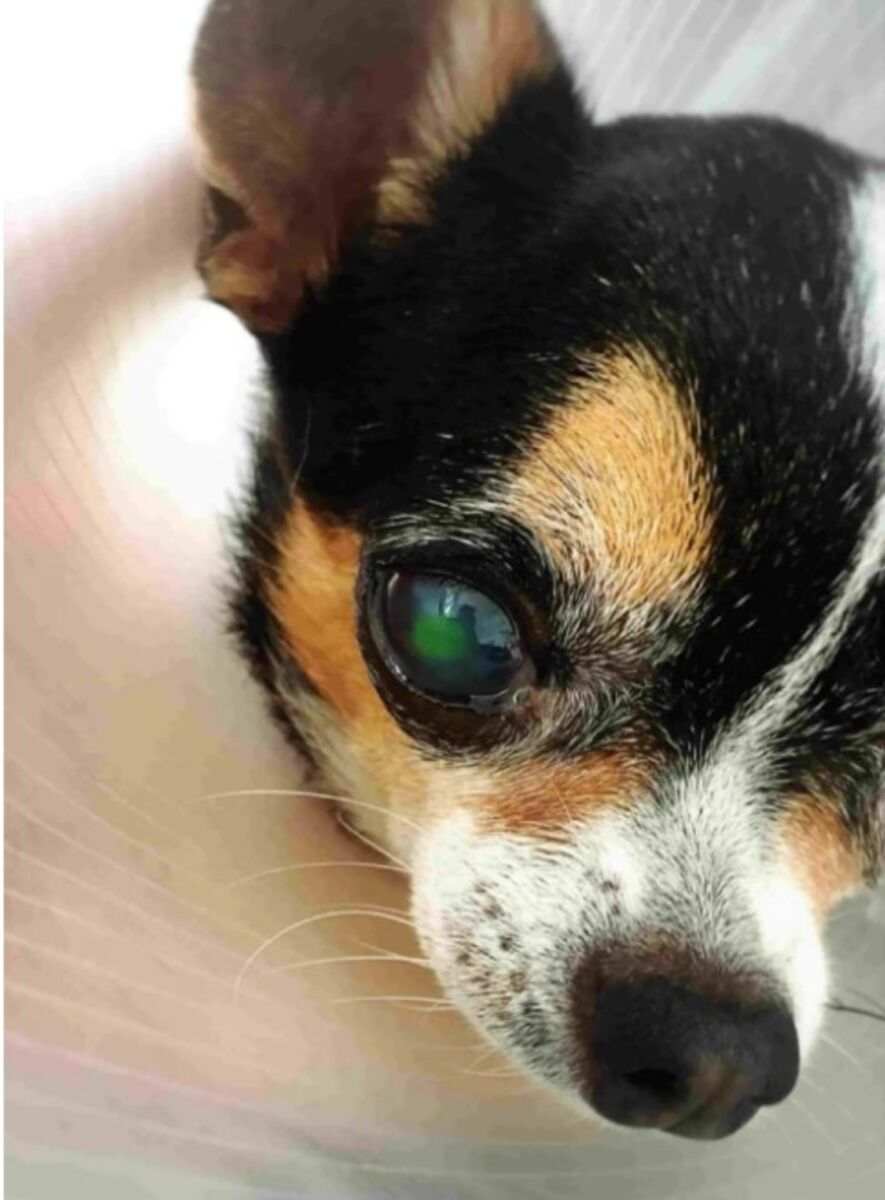Chulalongkorn University introduces 3D miracle cure for dog eyes

Does your dog struggle with cloudy eyes, frequent squinting, or unusual tears? If so, it might be suffering from a corneal ulcer, a condition that could lead to blindness if left untreated. But fret not, because scientists at Chulalongkorn University have developed a groundbreaking solution: a three-dimensional (3D) artificial cornea made from stem cells.
Chulalongkorn University’s Faculty of Veterinary Science and the Faculty of Engineering have joined forces to create a cutting-edge artificial cornea. This innovative solution aims to treat deep corneal wounds in dogs, offering a much-needed alternative to the costly and hard-to-find tissue replacements currently in use.
Veterinarian Dr Chutirat Torssahakul from the Department of Internal Medicine explains the problem.
“Corneal ulcers in dogs are increasingly common. They result from various causes, including allergies, fights, and accidental injuries. Our new 3D artificial cornea made from stem cells allows dogs to regain perfect vision.”
Current treatments for severe corneal ulcers often involve grafts from porcine bladder or canine placentas, which are expensive and rare. The new artificial cornea, however, uses natural materials readily available in Thailand, such as silk fibroin mixed with gelatin.
“It’s strong, durable, and mimics real corneal tissue.”
This artificial cornea is cultivated from the dog’s corneal stem cells, significantly reducing the risk of post-surgery reactions. The material is cheap, clear, and adheres well to cells, forming a three-dimensional structure akin to natural corneal tissue.
- Realistic appearance
The stem cells create a tissue structure that closely resembles the natural cornea, maintaining clarity and preventing opacity.
- All-natural composition
Harvested from the treated dog or recently deceased dogs, these stem cells minimise the risk of inflammation.
- Customisable fit
The three-dimensional sheets can be trimmed to fit the specific wound, ensuring a precise fit.
- Faster healing
Living stem cells promote cell adhesion and collagen formation, speeding up the healing process compared to non-living grafts.
Currently, the 3D artificial cornea is still undergoing laboratory tests to evaluate its effectiveness and interaction with the dog’s body, reported The Nation.
“The results are promising. We hope to apply this innovation to dogs within a few years and eventually expand it to cats.”
Latest Thailand News
Follow The Thaiger on Google News:


























